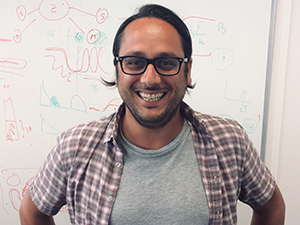Scientists have unveiled a cutting-edge research platform powered by artificial intelligence (AI) that will revolutionise cancer research by allowing researchers to integrate and analyse large and complex clinical trial datasets, speeding up the discovery of new cancer biomarkers.
A team from The Institute of Cancer Research, London, demonstrated the game-changing technology, at The Alan Turing Institute’s fifth AI UK conference.
The first AI models of the POETIC-AI platform, leveraging technology from Palantir’s AI platform Foundry, includes the novel AI tools built by the Institute of Cancer Research (ICR) team to integrate and analyse patient records, treatment information, blood and tumour tissue samples, genetic profiling data, digital pathology, and medical imaging such as CT and MRI scans.
The development of the new platform was supported in part by funding from the ICR and the joint ICR/The Royal Marsden NHS Foundation Trust Integrated Discovery and Diagnostics programme. The POETIC trial was funded by Cancer Research UK.
The team say the POETIC-AI platform will allow cancer researchers around the world to collaborate and access and analyse huge amounts of complex data within a trusted research environment far more quickly than ever before.
Discovery of new biomarkers
Ultimately, they hope the technology will lead to the discovery of new predictive biomarkers – which can help clinicians tailor a patient’s cancer treatment more precisely to their disease.
The first AI models on the platform use data from the POETIC trial, a study sponsored by The ICR and managed by the ICR Clinical Trials and Statistics Unit (ICR-CTSU), which was aimed at improving treatment for postmenopausal women with early-stage, hormone receptor-positive breast cancer.
In the POETIC study, the researchers looked at whether giving hormone therapy (aromatase inhibitors) before surgery could help identify which patients would benefit most from additional treatments.
Patients on the trial received hormone therapy to see how their tumours responded, and this was measured using a biomarker called Ki67, which indicates how quickly cancer cells are growing. Based on the changes in Ki67 levels after the treatment, clinicians could better personalise post-surgical treatments, potentially reducing the risk of their cancer coming back.
Allowing secure access to the data
ICR data scientists used the patient data from the completed POETIC trial to build the new AI platform to enable new research discoveries. Allowing researchers and clinicians to securely access this data, generate their own hypotheses, and test them in both laboratory and clinical settings could transform the field of emerging therapeutics.
Dr Maggie Cheang, who leads the ICR-CTSU Integrative Genomic Analysis in Clinical Trials Group at The Institute of Cancer Research, London, said:
“We need to develop prognostic and predictive biomarkers that match the complexity of cancer biology. This platform will allow us to move beyond existing methods that rely on a single type of data such as blood or tissue samples. By combining multiple data sources – such as patients’ tumour profiles and medical records – it will provide clearer, more personalised insights to improve diagnosis and treatment.
"POETIC-AI is not just a data integration platform – it is a step towards accelerating biomarker discovery, reducing bottlenecks in clinical trial analyses and ultimately advancing personalised cancer treatments that allows accessibility and AI-powered analyses. Carrying out translational clinical research of this nature is time-consuming and expensive.
'What once took years, can now be completed in a matter of months'
“But what once took years can now be completed in a matter of months or even days, allowing researchers to test their hypotheses rapidly and refine predictive models. The revolutionary aspect of this platform is the accessibility and ease of use of the underlying AI-powered analyses. It allows clinicians and scientists to query the wealth of data modalities using plain natural language questions. The ability to combine leading edge AI tools with researcher supervision and interrogation promises to revolutionise integrated discovery and diagnostics.”
The team at ICR-CTSU plan to expand the technology beyond POETIC-AI, by integrating data from other clinical trials and refining machine-learning models for real-time data analysis.
They are already planning future research using this platform, including developing novel visualisation and analytical tools to integrate data-rich biological and biomedical research with other data sets derived from the same patients, enabling an interactive AI explorer. This work is spearheaded by Dr Cheang’s PhD student Xixuan Zhu and Dr Ferran Cardo from the Joint ICR/RMH Integrated Pathology Unit, led by Professor Manuel Salto-Tellez.
Dr Cheang added:
“Our platform will facilitate academic research, and this initiative would establish an unprecedented approach for enabling investigators to securely access and analyse high-quality, biologically rich, clinical trial data.”
.tmb-propic-md.jpg?Culture=en&sfvrsn=c25d2b2f_9)
 .
.
